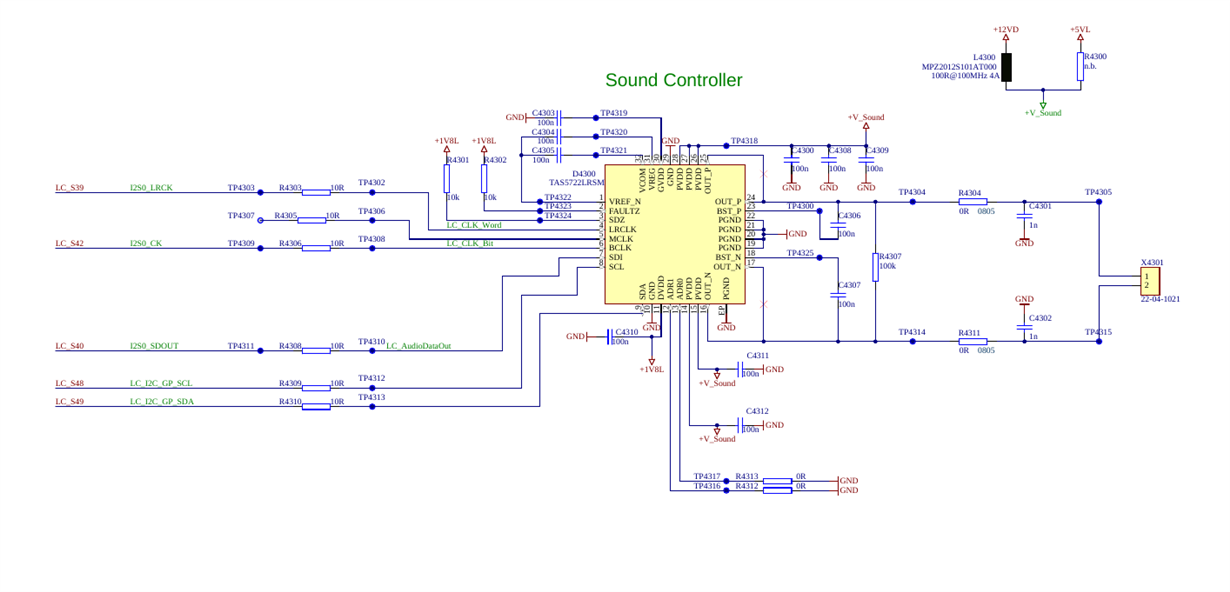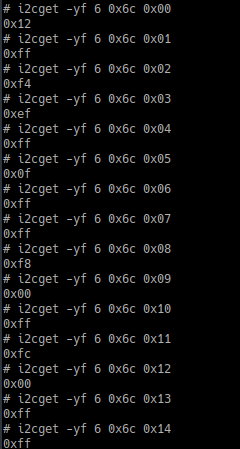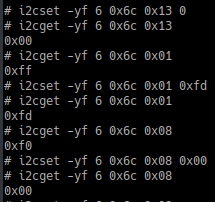Hi all,
We are using the TAS5722 on our board together with ApolloLake SOC running Linux4.19 and ALSA. We observe very seldom cases when during sound playing the Linux gets reboot and after new start no sound played. Even resetting of ApolloLake does not help. Only power cycle helps but this is not acceptable in our application
Now I got this error case. What I see:
- the I2S Signals are ok
- the PowerControl Register contains 0xFD (IC is not in sleep and not in shutdown mode)
- the FaultsConfigAndErrorStatus Register contains 0x08 (SAIF clock errors are present)
- the FAULTZ pin has short low spikes: low for 10us every 350us
When I write in PowerControl Register the 0xFC into PowerControl Register then the FAULTZ goes high and when write the 0xFD then the FAULTZ has again these short low every 350us. The datasheet describes short low on FAULTZ only for shutdown mode. But this is obviously not our case:
How can we recover the IC from this mode?
Thanks,
Best Regards,
Sergey





